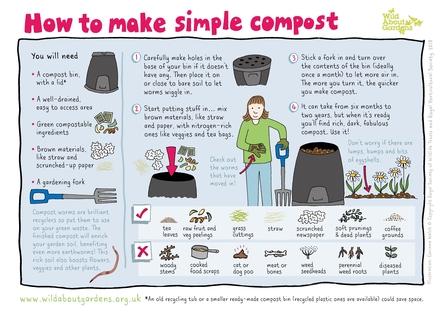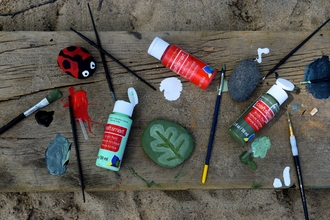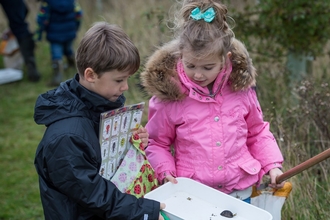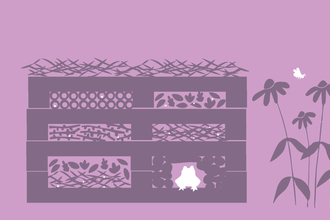Composting your garden and kitchen waste comes with plenty of benefits. You will reduce the amount of waste sent to landfill. You will also be able to provide a home and food source for a range of minibeasts that are a vital part of the food chain. The minibeasts who live among the waste help the decaying process, and in turn these beasts are delicious food for hedgehogs and other animals. Once you have made compost you can then use it to help plants grow as it will be jam-packed with super nutrients!
All you need for a successful compost heap is waste, air and water!
How to get started
All you need for a successful compost heap is waste, air and water! A simple heap covered with old carpet or plastic is just as effective as a 'bin'. The only advantage of a container is they look tidier and can be easier to manage. Try to pick a shady spot to keep things moist, and water any dry ingredients you may be adding.
What to put in your compost
- Grass cuttings and dead leaves
- Fruit and vegetable scraps and peel
- Plain cardboard (not the glossy cereal box kind)
- Old cut flowers and bedding plants
- Prunings and dead plants
- Coffee grounds
- Tea bags (check your teabags don't contain plastic first!)
- Pet droppings from any healthy veg-eating pets, including gerbils, rabbits, hamsters and birds, along with any bedding made from natural material or newspaper
- Eggshells – these help to keep the heap from smelling
- Newspapers – shredded paper can help to soak up excess moisture in a heap
Do not put in your compost:
Cooked food, coal and coke ash, meat and fish, bones, cat litter, dog poo, disposable nappies, glossy paper, weeds, woody stems, or diseased plants.
Top tips for composting
- Make sure you have a good mix of items. If you have large amounts of compostable items to dispose of, such as hedge trimmings or bags of cut grass, it is worth using your garden waste bin instead
- Composting works best if you add a fair quantity of material at a time, so it is best to save up your kitchen scraps and add them to the heap along with some old plant clippings
- Your compost is ready to use when it becomes dark and crumbly




